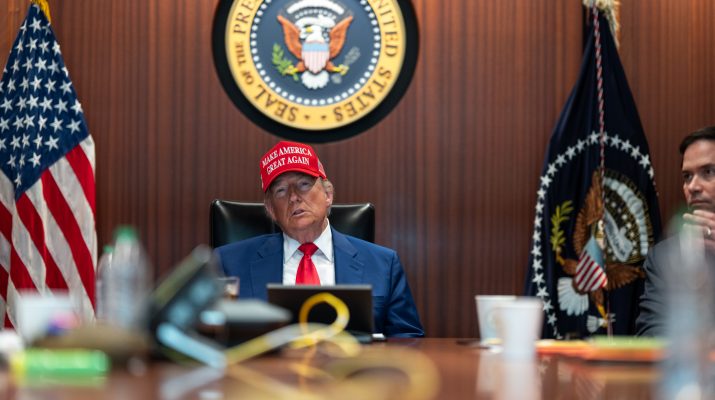By Chris David
The White House on Saturday issued one of its strongest warnings yet to the Iranian government, vowing a severe and overwhelming response should Tehran retaliate against the United States.
The statement follows a night of heightened tensions in the Middle East and comes amid speculation over a possible U.S. or allied military strike on Iranian assets.
“Any retaliation by Iran against the United States … will be met with force far greater than what was witnessed tonight,” the White House posted on its official X (formerly Twitter) handle.
The message did not detail the incident it referred to but strongly indicated that an operation or strike involving U.S. interests had taken place, possibly preemptive in nature or in response to Iranian aggression.
While the Trump’s administration has remained tight-lipped about the exact nature of the events that triggered the statement, defense officials speaking on background said the U.S. had engaged Iranian-backed elements in a limited military operation to “neutralize an imminent threat.”
Global observers were quick to interpret the White House message as a line drawn in the sand.
Analysts say the language signals a shift in tone, one that could indicate a new policy threshold in dealing with Iran’s growing military assertiveness and its nuclear ambitions.
The message comes amid growing concern over Iran’s influence in regional conflicts and its expanding ballistic missile program.
Just days ago, Iran reportedly conducted long-range missile drills in the Gulf, which the Pentagon described as “provocative and destabilizing.”
While the U.S. and Iran have often exchanged rhetorical threats, the forceful tone of Saturday night’s message suggests the administration is now prepared to respond with a higher level of military engagement if provoked.
Middle East experts have warned that such escalation risks igniting broader conflict. “This is a dangerous moment,” said Dr. Layla Farouq, a senior analyst at the Center for Strategic International Studies.
“The wording from the White House indicates they believe an Iranian response is not only possible but imminent,” he added.
The warning has drawn mixed reactions from global allies. While Israel and several Gulf States reportedly support a firmer stance against Iran, European Union officials have urged restraint, calling for de-escalation and renewed diplomatic dialogue.
Meanwhile, the global markets reacted swiftly. Oil prices surged overnight, with Brent crude climbing nearly 4% amid fears that supply routes in the Persian Gulf could be threatened if hostilities intensify.
As of Sunday morning, there were no reports of direct retaliation from Iran, but regional forces remain on high alert. U.S. embassies in Iraq and other Middle Eastern countries have also issued security advisories to citizens and staff.
While it remains unclear whether the warning will deter Iran or escalate tensions further, the world is watching closely.
The Trump administration’s message sends a clear signal: any attack on U.S. interests will be met not with proportional force, but with overwhelming retaliation.
The coming days may determine whether this bold posture succeeds in deterring conflict or inadvertently invites one.

